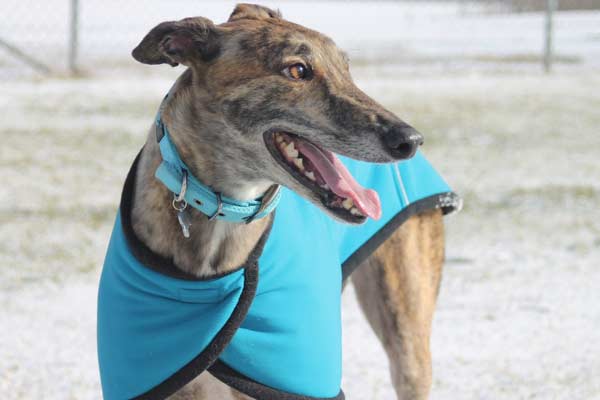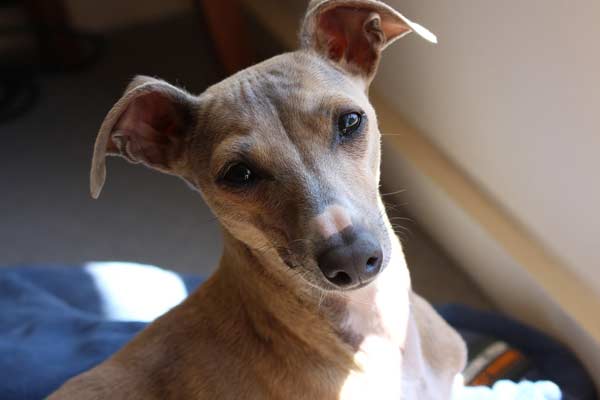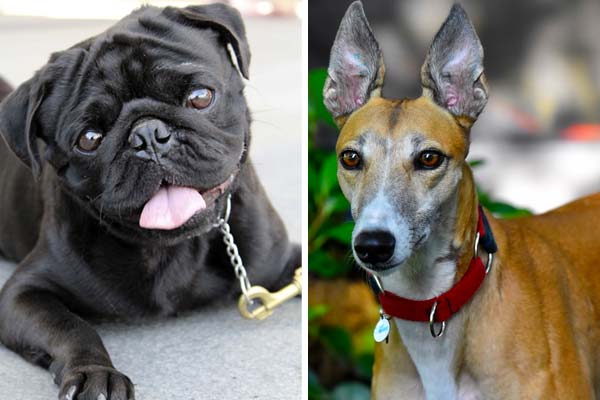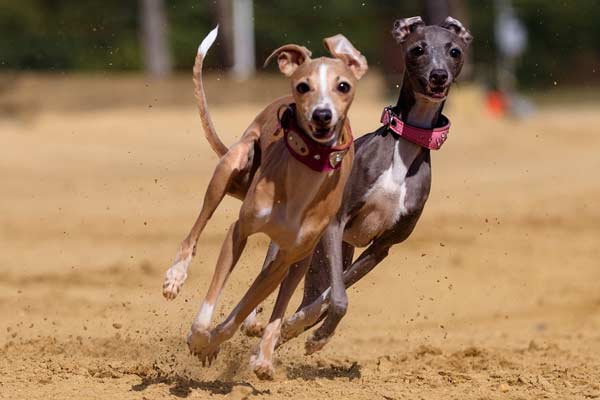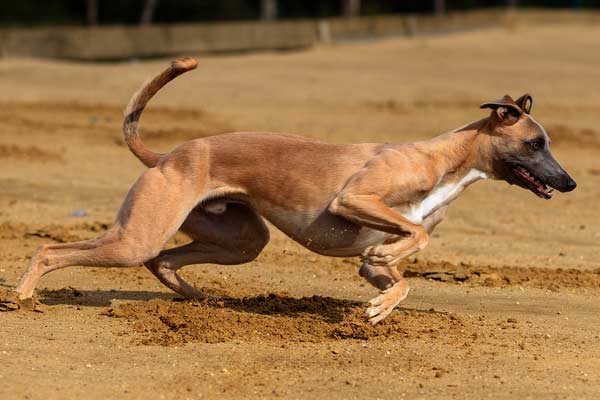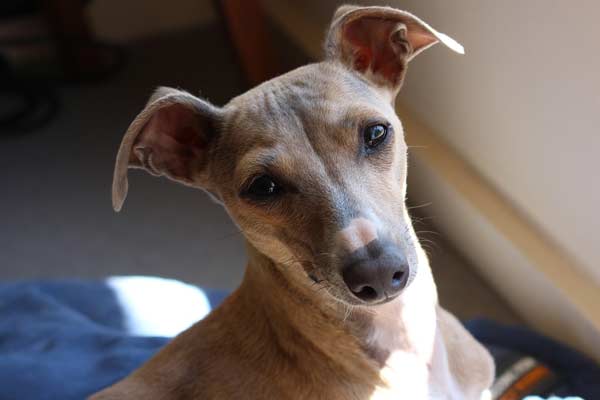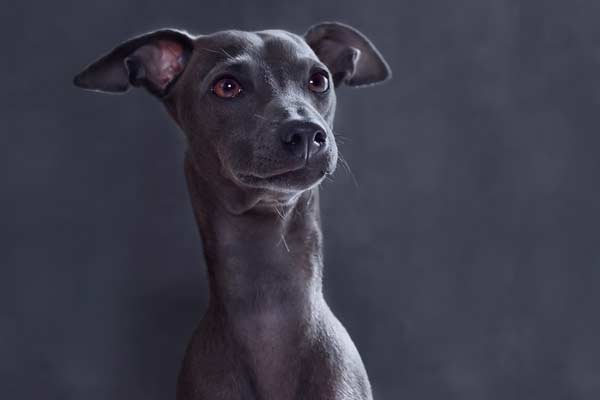19 Things You Need to Know Before Owning A Greyhound
Greyhound Pros
Owning a greyhound can be an incredible experience for any pet lover. Greyhounds are known for their sweet and gentle dispositions, making them great family pets.
However, when owning one of these beautiful animals, there are specific considerations to keep in mind. From weather sensitivity to injury risks, it’s essential to know if greyhounds are good pets and the pros and cons of owning a greyhound before bringing one into your home.
Here we will discuss the benefits and drawbacks of having a greyhound as part of your family so that you can make an informed decision on whether this breed is right for you.
They Are Affectionate
Greyhounds are known for being loyal and affectionate pets. They tend to form strong bonds with their owners and show them lots of love and attention.
Greyhounds can be great companions as they are gentle, loving, tolerant, and patient dogs.
Greyhounds Are Not Aggressive Dogs
Greyhounds are not usually aggressive dogs. They are known for being gentle and friendly animals that enjoy companionship and show affection towards their owners.
Greyhounds have a very even temper that makes them excellent family pets, as they get along well with children and other pets in the household.
Greyhounds Good With Kids
Greyhounds are generally good with kids. They possess a gentle and tolerant demeanor which allows them to get along very well with children of all ages.
Greyhounds are usually quite patient and mild-mannered, and they can form strong bonds with their owners, so they will often become devoted companions to younger family members.
Friendly Temperament
Greyhounds typically have a friendly and gentle temperament. They are known for being loyal and affectionate pets that form strong bonds with their owners.
Greyhounds can be very tolerant, patient, and mild-mannered dogs, so they usually get along well with children and other animals.
Greyhounds Do Not Need Many Exercises
Greyhounds only need a little exercise. Although they are not known to be active dogs and don’t require large amounts of physical activity, they still need adequate training to stay healthy.
Taking your Greyhound for regular daily walks is essential as it allows them to stay fit and burn off any excess energy.
Low-Maintenance Dog
Greyhounds are low-maintenance dogs. They don’t require much grooming or special care, making them easy to maintain.
They don’t usually bark excessively or cause any other trouble around the house. These dogs only need daily walks and regular playtime with their owners to stay healthy and happy.
Easy to Train
Greyhounds are relatively easy to train, eager to please their owners, and can learn simple commands quickly, but they require patience and consistency to learn more complex tasks; greyhounds usually catch on quickly when given the proper guidance from their owners.
Good Apartment Dogs
Greyhounds can be good apartment dogs. Despite their large size, greyhounds don’t require as much exercise as other breeds of dogs and are relatively low-maintenance in grooming and upkeep.
They are also known for being patient and mild-mannered, making them well-suited to living in an apartment where they won’t disturb the neighbors.
Also, they aren’t very noisy or active indoors – thus making them an excellent option for those looking for a quiet companion pet suitable for apartment living.
They Don’t Bark a Lot
Greyhounds typically don’t bark a lot. They are known for being relatively quiet dogs that don’t make too much noise indoors.
Greyhounds may bark if they sense danger or another pet in their territory, but generally, they are well-behaved and won’t start barking randomly like some other breeds of dogs do.
They Are Loyal
Greyhounds can be very loyal and affectionate pets. They form strong bonds with their owners and have a reputation for being patient and mild-mannered.
Greyhounds are also known to be tolerant, so they usually get along well with children and other animals.
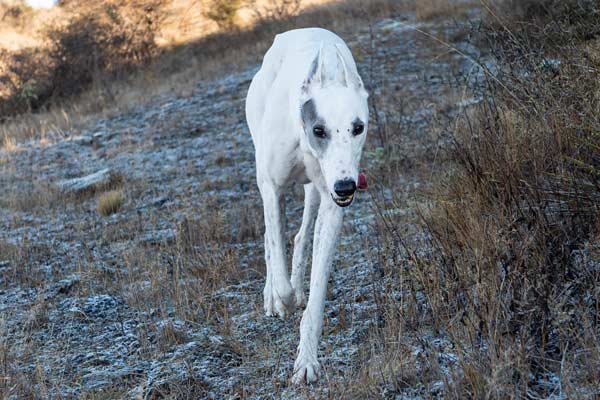
Greyhound Cons
Large Dog
Greyhounds are “large breeds” of dogs, weighing 50-90 pounds at full size. They take up a lot of space and have strong chasing instincts, making them difficult to control in certain situations.
Also, consider adopting a greyhound. You must be aware that many retired racing greyhounds have underlying health conditions due to long periods on the racetrack without proper medical attention.
Therefore, ensuring these animals get vet care before adopting them into your home is essential.
Not A Good Watchdog
Greyhounds are not good watchdogs. They tend to be friendly to strangers and do not bark at unfamiliar people or sounds.
Greyhounds may remain alert and attentive, but they won’t make good guard dogs because of their trusting nature and lack of aggression.
Greyhound Can Be Destructive Dog
They can be, but it is usually due to boredom or lack of exercise. Greyhounds have a strong prey drive and can be easily distracted by small animals, so they must be kept on a leash outdoors.
Greyhounds bred for racing require regular exercise and playtime with their owners to stay healthy and active.
If greyhounds become bored or don’t get enough exercise, they can become destructive and exhibit unwanted behaviors such as chewing furniture or clothing.
Mess Maker
Greyhounds can be messy and prone to making accidental messes around the house.
Greyhounds bred for running can run very fast and may not be able to stop themselves quickly enough when chasing something – leading to accidents in the home.
Seasonal Shedding
Greyhound doesn’t shed much, but it does shed moderately during season changes.
Regular coat brushing with appropriate brushes and combs can help reduce shedding.
Also, regular vacuuming of carpets and furniture can help maintain a clean environment and reduce the amount of fur in your home.
Also, giving your healthy greyhound treats to keep its skin and coat healthy can help minimize shedding.
Following You Everywhere
Greyhounds may become too attached to their owners and constantly follow them around.
Greyhounds form strong bonds with their owners, and if not given enough exercise or stimulation, they can become overly eager for attention from their favorite person.
It’s essential to give your greyhound plenty of physical activity and mental stimulation to help prevent any excessive attachment behaviors.
Greyhounds Cannot Live Outside
They are sensitive to cold temperatures and can become seriously ill if left outdoors in the winter.
Greyhounds are better suited for life as indoor pets, where they can receive proper care and attention from their owners or family members.
If you want your Greyhound to be able to go outside during the day, it’s best to give them supervised exercise in a safe area or take them on short walks multiple times every day.
Greyhounds are sensitive to both hot and cold weather. They should not be left outside for long periods in either hot or cold temperatures as they can suffer from heatstroke or frostbite very quickly.
During the summer months, it’s best to keep your Greyhound indoors with plenty of shade and water available, so they don’t overheat.
During the winter, bring your Greyhound inside if the temperatures drop too low and provide them with a warm place to relax.
Separation Anxiety
Greyhounds can experience separation anxiety when they are left alone for long periods.
Signs of separation anxiety in a greyhound include howling, chewing on furniture or objects, pacing, panting, and drooling excessively, and destructive behavior like digging or hiding possessions around the house.
Prone To Injuries
Greyhounds are prone to injury due to their long legs and slim build. Greyhounds can be susceptible to muscle strains and injuries because of their quick running or playing movements.
If your Greyhound suffers from an injury, it’s essential to seek veterinary attention to treat it appropriately.
Also, they are sensitive to cold temperatures, so it is crucial to keep them warm if they are outside for extended periods.
It’s also essential to keep your Greyhound on a healthy diet and get plenty of exercise to maintain its strength and agility.
Conclusion
Overall, owning a greyhound can be both rewarding and challenging. Greyhounds are affectionate companions that require regular exercise to stay healthy and active.
They may become overly attached to their owners or experience separation anxiety if left alone for long periods.
Also, they tend to make messes in the home and are prone to injuries due to their slim build and quick movements. With proper care, attention, dieting, and exercise, your Greyhound will remain happy and healthy for many years!
